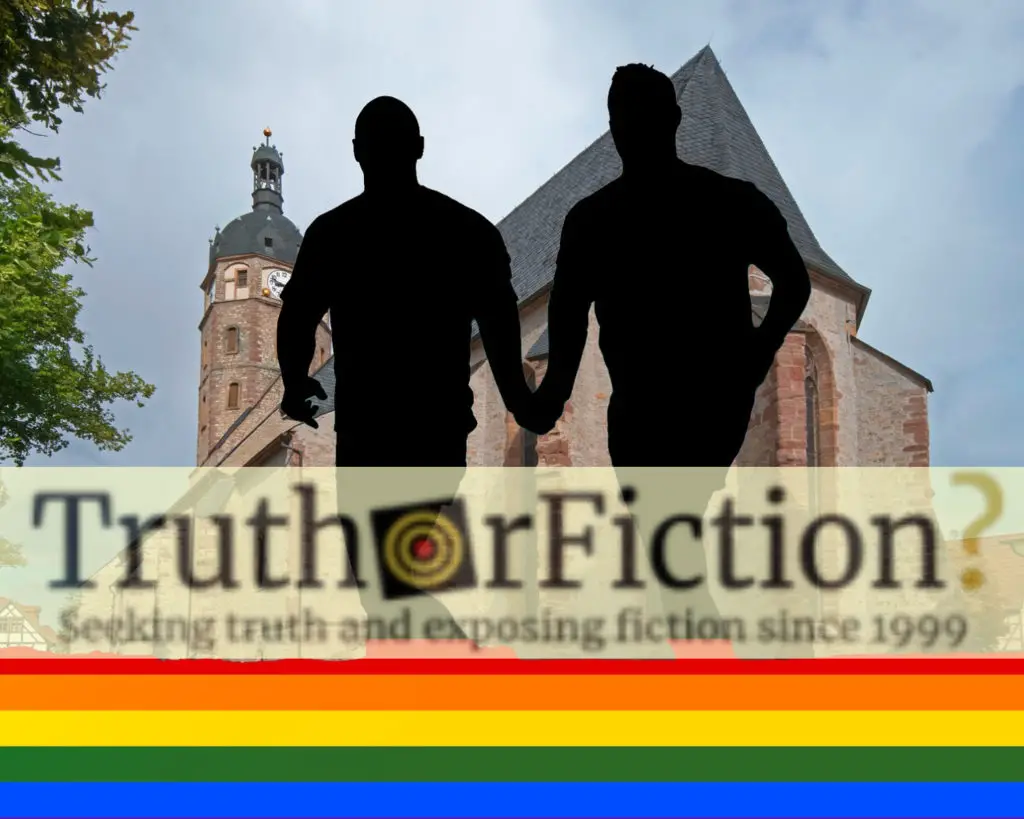In early October 2020, the far-right Proud Boys — who already regularly made national news in the United States for their violent rhetoric, hostility toward human rights protesters, and open support of President Donald Trump — were whipped into a frenzy after Trump himself mentioned them by name during the September 29 2020 presidential debate, advising them to “stand back” and “stand by“:
On the Proud Boys’ account on the social media app Telegram, the group appeared to take the statement as marching orders.
“Standing down and standing by sir,” the account wrote. The account then posted two videos of the answer, including one with the caption “God. Family. Brotherhood,” in which a man howled at the TV in response to Trump’s response.
[…]
The Proud Boys, a self-described “Western chauvinist” organization, is considered a violent, nationalistic, Islamophobic, transphobic and misogynistic hate group, according to the Anti-Defamation League, a nonprofit organization that tracks extremist groups. Proud Boys members marched at the Unite the Right rally in Charlottesville, Virginia, and have organized against Black Lives Matter protests in recent months.
After that, Twitter’s #ProudBoys hashtag was quickly taken over by images celebrating same-sex relationships:
It started after a callout from actor George Takei last week, who suggested on social media that gay men add the hashtag #proudboys to photos of themselves celebrating the LGBTQ community.
Proud Boys has been associated with violence and the far-right movement. The U.S.-based Southern Poverty Law Centre (SPLC) describes the all-male organization as a hate group.
The Proud Boys, founded in 2016 by Canadian Gavin McInnes, was recently in the spotlight after U.S. President Donald Trump was asked to condemn white supremacist and militia groups during last week’s presidential debate.
This was followed by a pervasive rumor that the Proud Boys had rebranded to the “Leather Men” as a result, which was met with gleeful commentary of its own (leathermen are a subculture of the LGBTQ community perhaps best known for, yes, wearing leather):
However, this is not true. That rumor originated from Canadian site The Beaverton, which published a story on October 5 2020 (“As Gay Twitter reclaims #ProudBoys hashtag, Proud Boys change name to ‘Leather Men'”) that evidently caught social media’s eye:
While members of the far right gang were admittedly sad to lose their iconic Fred Perry polo shirts and Proud Boys name, many seem optimistic about the new Leather Men branding. “Just imagine how cool it’ll look when a bunch of us dudes show up to a bar together all wearing badass leather,” exclaimed Marcus Smith, Proud Boys member and Orange Julius assistant manager.
“Some of the guys are even gonna take it a step further, and wear leather caps, or even go extra-tough and wear those cool leather harnesses they sell in specialty stores. No one’ll ever make fun of us again!”
Given the former Proud Boys focus on Men’s Rights, several members plan to use their group’s new branding to advocate for divorced men not having to pay alimony, posting under the hashtag #LeatherDaddies.
At press time the Leather Men (formerly Proud Boys) organization is reporting record applications for membership, mostly through Grindr.
Later that week, the site doubled down on Twitter:
But actually, The Beaverton had, as they make clear on the site’s disclaimer:
The Beaverton is a news satire and parody publication. All articles contained within this website and on its social media accounts, however similar to real events, are fictitious. When public figures or actual businesses are mentioned by name, the corresponding story details are invented. In all other cases, any resemblance to actual persons, businesses or events is entirely coincidental.
Images on the The Beaverton website may consist of original photos, commissioned artwork, stock photography and creative commons photos. We have done our best to attribute the creators of such photos and artwork based on the information available to us. Use of these works does not suggests that the respective authors endorse us or our use of the work.
Naturally, the article was quickly decoupled from the site’s disclaimer to go viral (as so often happens), but it is not true; the story is satire, and the Proud Boys remain the Proud Boys.

